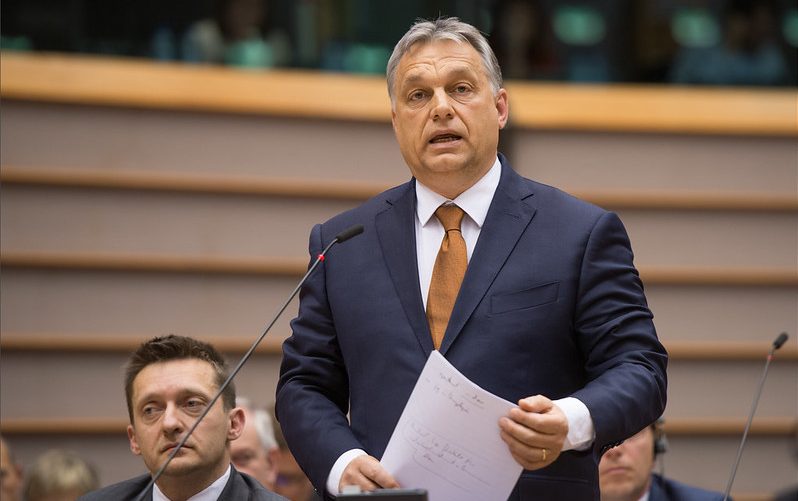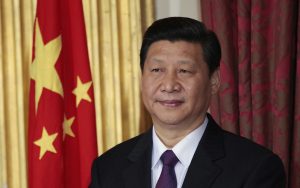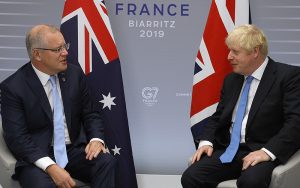After 11 years under the rule of Orbán and his Fidesz government, new controversial laws that lead to a tighter grip on power are common practice -and usually do not (anymore) lead to great public outcry. So, in the end, it could be labelled as “just another assault on Hungarian democracy” – so nothing new in Orbán’s Hungary, right? Wrong.
The most recent controversial law was approved on April 27, 2021, in the Hungarian Parliament, where Fidesz enjoys a two-thirds majority. Naturally, the government presents the move as favourable for the public, alleging it would benefit young people and that it is much needed, amongst others, to modernise the education system. However, there are valid concerns that this will likely further tighten Orbán’s grip on power, a year ahead of the parliamentary elections in 2022.
The Controversial Law for Creating New Foundations
With the adoption of the new law, the parliament approved the creation of new foundations and thereby agreed to the transfer of “a large array of state assets, of universities and other public institutions”, to “new quasi-private foundations“. The assets amount to up to two billion Euros, and the foundations are facing less financial scrutiny than public bodies.
In essence, the new law allows the set-up of new foundations that will “take over the running of universities and cultural institutions” – thus further consolidating the ideological, meaning the conservative, illiberal, and right-wing, orientation of the current government.
As Reuters reports, the bill was drafted by Prime minister Orbán’s deputy and states that “universities need to be reorganized and run by foundations because modern conditions require a ‘re-thinking of the role of the state'” – however, it remains unclear what exactly is meant by that.
Furthermore, these foundations should guarantee that the universities will be managed “more efficiently”.
A Watchdog for Universities and “National Identity”
Up until now, even though Hungarian Universities were owned by the state, they yielded significant academic autonomy. According to the Financial Times, the new foundations will mainly oversee Hungarian Universities. Also, the New York Times reports that the Hungarian Parliament voted to transfer “control of 11 state universities, along with billions of euros in related state assets, to quasi-public foundations led by close allies of the country’s prime minister, Viktor Orban.”
This will therefore likely add further constraints on academic freedom in Hungary, which has already been targeted in the past – the most prominent example of it being the eviction of the prestigious Soros-founded Central European University from Hungary, sparking outrage across the European Union.
Likewise, the opposition expressed concerns that, given that Fidesz party sympathizers and government ministers are placed on the boards of the new foundations that will run universities, Orbán would be able to exert influence and control even in case of a loss in the upcoming 2022 elections, thus undermining universities’ autonomy.
Reuters further reported that the foundations also aim to “defend the survival and well-being of the nation and the interests of enriching its intellectual treasures” and that “the foundations running some of the cultural institutions would be tasked with ‘strengthening national identity’.”
This should raise concerns that the government will further entrench its conservative ideology, thereby significantly influencing the Hungarian society’s worldview.
The EU Recovery Fund’s Role in the Matter
What is even more interesting, but hardly surprising, is where these new foundations will receive their financial resources from. On the one hand, they will be endowed by state-owned companies such as MOL and Richter. In a cronyist regime such as Hungary, it is not far-fetched to assume that in both companies, MOL and Richter, government allies placed in high-ranking positions will profit greatly and ensure that Fidesz’ demands are executed and its ideology further consolidated.
On the other hand, as elaborated in a Bloomberg article, Hungary asked the European Union “to channel a fifth of the grants the country is eligible to receive from the EU’s (…) pandemic recovery fund to the “modernization of universities,” which would be overseen by the foundations’ boards.” Hence, speaking in numbers, approximately $3.3 billion from the EU’s Recovery Fund should be allocated to the new foundations.
Naturally, this raises concerns over the potential risk of increased corruption related to the transfer of the EU money from the Recovery Fund. Unfortunately, corruption continues to be a widespread issue in today’s Hungary and has undoubtedly become more endemic during over ten years of Fidesz’ rule. It thus remains highly questionable whether the money that is being channelled directly into the hands of Fidesz loyalists sitting on the board of the newly created foundations will be used appropriately.
Certain Members of the European Parliament have already expressed concerns over the potential misappropriation of the money from the Recovery Fund. They also warned the Commission President that 20 per cent of EU funds from the bloc’s recovery fund available to the country would “disappear in opaque funding structures” and “which have the purpose of further destroying academic freedom and institutional autonomy in Hungary”.
In the past, Hungary has already been investigated multiple times by OLAF, the European Anti-Fraud Office, due to irregularities that have been discovered related to the country’s use of EU Funds. And hence, since the best predictor for future behaviour is past behaviour, it is evident that at least some portion of the money from the Recovery Fund will “get lost” within these new structures.
And yet, a glimmer of hope that the irregularities will be discovered quickly remains: On June 1, 2021, the new European Public Prosecutor’s Office (EPPO), an independent body responsible for fighting crimes against the Union budget, finally launched its operations. As a result, there are now great expectations that this new body will be able to investigate and, if necessary, prosecute crimes against the EU budget – such as fraud and corruption – that may take place within these new structures in Hungary. And, Albeit Hungary is not a member of EPPO as it refused to participate, it will “have to cooperate with the EPPO on the basis of the existing EU instruments of judicial cooperation and in accordance with the principle of sincere cooperation.”
Dead End: Two-Thirds Majority
Even if the opposition manages to win the 2022 election, changing these new rules governing these foundations would require a two-thirds majority, which is unlikely to be reached by the opposition in the upcoming 2022 election. That means it will be challenging to change specific laws as they would require a majority they are unlikely to reach.
In the meantime, it remains to hope that the MEPs will put further pressure on the European Commission, convincing it to put a hold on the distribution of funds to the opaque structures. Otherwise, concerns about the misappropriation of these funds and further enrichment of government allies remain legitimate and reasonable.
SourcesEuropean Commission (2021): European Public Prosecutor’s Office (the EPPO), https://ec.europa.eu/info/law/cross-border-cases/judicial-cooperation/networks-and-bodies-supporting-judicial-cooperation/european-public-prosecutors-office_en
European Commission (2021): Questions and Answers: Launch of the activities of the European Public Prosecutor’s Office (EPPO), https://ec.europa.eu/commission/presscorner/detail/en/qanda_21_2795
EU Observer (2021): Hungary’s power-grab to stay one step ahead of EU, https://euobserver.com/democracy/151701
Financial Times (2021): Hungarian parliament approves law creating new foundations, https://www.ft.com/content/18bad232-860d-4a2a-bd57-b180afcfaa75
Komuves, A. & Dunai, M. (2021): Orban extends dominance through Hungarian university reform, Reuters, https://www.reuters.com/world/europe/orban-seen-entrenching-right-wing-dominance-through-hungarian-university-reform-2021-04-26/
Novak, B. (2021): Hungary Transfers 11 Universities to Foundations Led by Orban Allies, The New York Times, https://www.nytimes.com/2021/04/27/world/europe/hungary-universities-orban.html?searchResultPosition=1
Simon, Z. (2021): Orban Drops $4 Billion Plan for Covid Cash That Alarmed EU, Bloomberg, https://www.bloomberg.com/news/articles/2021-04-29/hungary-drops-plan-to-use-billions-in-eu-funds-for-foundations








Be First to Comment